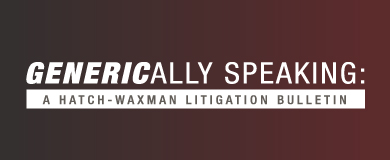- Acumen Powered by Robins Kaplan LLP®
- Affirmative Recovery
- American Indian Law and Policy
- Antitrust and Trade Regulation
- Appellate Advocacy and Guidance
- Business Litigation
- Civil Rights and Police Misconduct
- Class Action Litigation
- Commercial/Project Finance and Real Estate
- Corporate Governance and Special Situations
- Corporate Restructuring and Bankruptcy
- Domestic and International Arbitration
- Entertainment and Media Litigation
- Health Care Litigation
- Insurance and Catastrophic Loss
- Intellectual Property and Technology Litigation
- Mass Tort Attorneys
- Medical Malpractice Attorneys
- Personal Injury Attorneys
- Telecommunications Litigation and Arbitration
- Wealth Planning, Administration, and Fiduciary Disputes
Acumen Powered by Robins Kaplan LLP®
Ediscovery, Applied Science and Economics, and Litigation Support Solutions
-
April 15, 2024Robins Kaplan Named to 2024 BTI Client Service A-Team
-
April 9, 2024Robins Kaplan LLP Files Complaint Against Social Media Giants Meta, Snap, TikTok on Behalf of Spirit Lake Nation, Menominee Indian Tribe of Wisconsin
-
April 8, 2024Tara Sutton, Emily Tremblay Shortlisted for Euromoney’s Women in Business Law Awards
-
April 24, 2024IP Leadership Executive Summit
-
April 24, 2024IP Odyssey: Navigating the Latest Developments in Intellectual Property Law
-
April 30, 2024Navigating Generational Dynamics
-
March 2024e-Commerce: Pitfalls and Protections
-
March 22, 2024‘In re Cellect’:
-
March 14, 2024How Many Cases Have You Tried to a Verdict?
-
September 16, 2022Uber Company Systems Compromised by Widespread Cyber Hack
-
September 15, 2022US Averts Rail Workers Strike With Last-Minute Tentative Deal
-
September 14, 2022Hotter-Than-Expected August Inflation Prompts Massive Wall Street Selloff
Find additional firm contact information for press inquiries.
Find resources to help navigate legal and business complexities.
Novartis Pharms. Corp. v. Accord Healthcare Inc.
Motion to dismiss granted when, under the patent venue statute, defendant did not reside in the venue and did not have a regular and established place of business in the venue.
June 17, 2019

Case Name: Novartis Pharms. Corp. v. Accord Healthcare Inc., C.A. No. 18-1043-LPS, 2019 U.S. Dist. LEXIS 101106 (D. Del. June 17, 2019) (Stark, J.)
Drug Product and Patent(s)-in-Suit: Gilenya® (fingolimod capsules); U.S. Patent No. 9,187,405 (“the ’405 patent”)
Nature of Case and Issue(s) Presented: Defendant MPI Pharm. Inc. (“MPI”) moved to dismiss the action against it, due to improper venue. Plaintiff Novartis sued MPI and 22 other defendant generic drug makers, all of whom had filed ANDAs seeking to market generic fingolimod. MPI, a West Virginia company, brought its motion under Fed. R. Civ. P. 12(b)(3). After the motion was briefed, the Court issued a decision in another case, BMS II, which dismissed a different Hatch-Waxman action against MPI based on improper venue in the District of Delaware. The court then ordered supplemental briefing, to permit the parties to address the impact of BMS II on MPl’s motion in this case. The court granted MPI’s motion and denied Novartis’s request for discovery and to file an amended complaint.
Why MPI Prevailed: In a patent-infringement action, venue was governed solely and exclusively by the patent venue statute, 28 U.S.C. § 1400(b), which states, “Any civil action for patent infringement may be brought in the judicial district [i] where the defendant resides, or [ii] where the defendant has committed acts of infringement and has a regular and established place of business.” Therefore, the burden was on Novartis to demonstrate that venue in D. Del. was proper either because [i] MPI resided in Delaware or [ii] MPI had a regular and established place of business in Delaware and had committed infringing acts here.
Novartis argued that MPI was urging the court to find that the general venue statute, Section 1391, and not the patent venue statute, Section 1400(b), governed venue in Hatch-Waxman cases because it “provide[d] for unique forms of regulatory relief prior to actual infringement.” Novartis emphasized the disconnect between the word choice of the patent venue statute—“has committed” acts of infringement—and Hatch-Waxman cases, in which the proposed infringing product has not yet been marketed or sold. The BMS II decision rejected the very same argument Novartis pressed, and while “Novartis’ briefing on the issue is far more extensive than BMS’ had been, it does not persuade the Court to reach a different conclusion.”
MPI was not incorporated in Delaware and, therefore, indisputably did not reside there. Moreover, Novartis had not articulated, with reasonable particularity, a plausible basis to believe that venue-related discovery would lead to evidence allowing the court to find that MPI resided in or had a regular and established place of business in D. Del. MPI’s merely doing business in Delaware did not make Delaware a regular and established place of business for MPI; it followed that if MPI, to do business in Delaware, were required to have an employee in Delaware, that fact, without more, would not be sufficient to make Delaware a location of MPI’s regular and established business.
Related Professionals
Christopher A. Pinahs
Partner
Related Publications
Related News
If you are interested in having us represent you, you should call us so we can determine whether the matter is one for which we are willing or able to accept professional responsibility. We will not make this determination by e-mail communication. The telephone numbers and addresses for our offices are listed on this page. We reserve the right to decline any representation. We may be required to decline representation if it would create a conflict of interest with our other clients.
By accepting these terms, you are confirming that you have read and understood this important notice.
